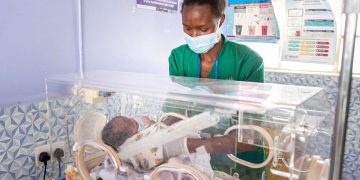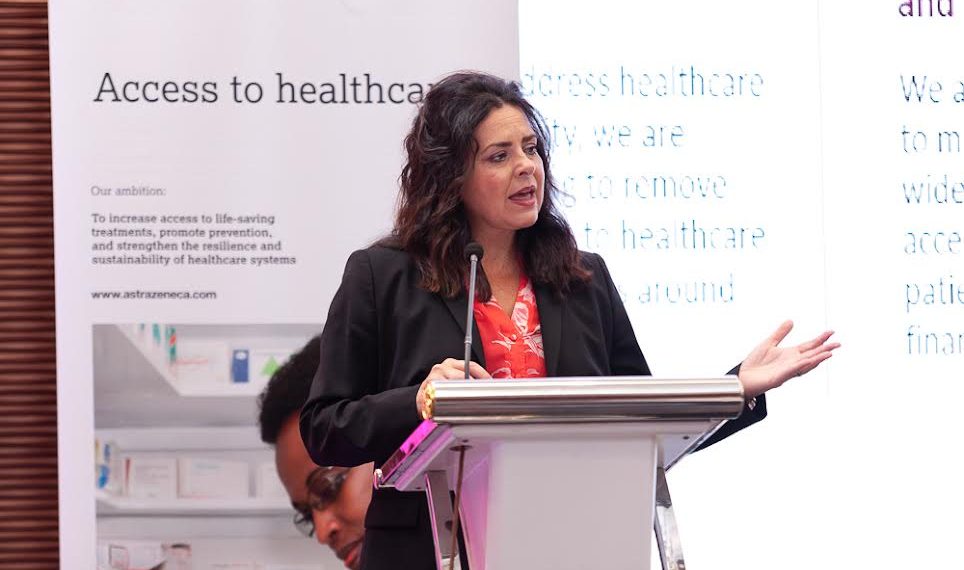By Samwel Doe Ouma @samweldoe
African governments have been urged to design and implement comprehensive private -public programs that can detect non-communicable diseases (NCDs) early on and expand access to reliable and definitive diagnostics in conjunction with adequate treatment programs.
According to Ashling Mulvaney, VP Sustainability, Access to Healthcare & Healthy Heart Africa (HHA) at AstraZeneca, AstraZeneca’s partnership with some African governments has demonstrated that multi-disciplinary partnerships with a shared goal, transparency and commitments can not only create a robust health care program that expands affordability of healthcare for the poor but also provides a holistic approach to NCDs care delivery.
African governments partnership with AstraZeneca though its Healthy Heart Africa program has contributed significantly in strengthening healthcare capabilities to provide life-long care for patients living with non-communicable diseases (NCDs), she said.
“The HHA Program which is aimed at prevention and control of non-communicable diseases (NCDs) through public -private partnerships has transformed healthcare systems to respond to challenges of NCDs,” Ashling told health business adding that “No one can do it alone, it is important to collaborate and work together.”
AstraZeneca, through its Healthy Heart Africa (HHA) access program, covers the full spectrum of NCDs care from early prevention to treatment: from youth education on non-communicable disease (NCD) behaviors, through patient assistance and early screening activities to supporting sustainable access to health care in some of the most impoverished areas.
The program according to Ashling has achieved significant milestones in terms of the number of people screened, diagnosed and referred for treatment.
“HHA and partners work together to improve education, raise awareness and increase access to NCDs care through government and stakeholders’ partnerships in Kenya, Tanzania, Ethiopia, Ghana, Senegal, Ivory coast, Rwanda and lately Nigeria,” Ashling told Health Business in an Interview in Nairobi.
Healthy Heart Africa, AstraZeneca’s access program is aimed at tackling the burden of hypertension and reducing cardiovascular related deaths with a goal to reaching 10 million patients across sub-Saharan Africa by 2025.
The HHA program work with doctors, nurses, pharmacists, and other health care providers equipping them with adequate training to educate the public, screen for disease, and treat patients.
“By integrating existing healthcare organizations into the program, we have expanded our reach to help in the prevention and control of NCDs.”
The HHA access program has been integrated into existing health systems with a goal of bringing care to lower levels of facilities.
The program conducts awareness-raising activities in communities (e.g., churches, marketplaces, workplaces) by encouraging people to seek hypertension screening and diagnosis, and if needed, treatment.
It has also trained over 9,000 health care workers and community volunteers to provide comprehensive and appropriate hypertension care, based on guidelines developed in collaboration with the Kenyan MOH, HHA partners, and Kenyan cardiologists.
The program has equipped facilities to provide screening services and ensure a consistent supply of antihypertensives at a significantly reduced price, in part through an innovative supply chain system for all HHA sites.
HHA aspires to reach 10 million people with elevated blood pressure across Africa by 2025, by Increasing awareness and educating around lifestyle choice and cardiovascular diseases (CVD) risk factors. The program is facilitating access to low cost, high quality branded anti-hypertensives, where applicable.
“Partnering with local and global partners, HHA aims to improve access to hypertension care as it was established with the ambition to be sustainable. To help achieve this, AstraZeneca provides branded medicines at a significant discount, but one that enables us to implement a no-profit/no-loss business model.”
The burden of Non-communicable Diseases (NCDs) such as Diabetes and Hypertension is on the rise in Kenya mostly due to the adoption of unhealthy lifestyles such as physical inactivity, consumption of unhealthy foods, alcohol intake and tobacco use. The adoption of these lifestyles is largely driven by urbanization, westernization and an aging population.
In July, AstraZeneca’s partnership with Kenya’s Ministry of health (MoH) donated AstraZeneca’s innovative screening equipment’s to the Kenya Medical Research Institute (KEMRI), Kenyatta National Hospital (KNH)/ The University of Nairobi (UON) and the Aga Khan University Hospital (AKUHN).
The equipment will enable recipient institutions to conduct research on the use of non-invasive technology to predict the risk of hypertension, diabetes, eye conditions and other medical conditions through retinal scanning.
AstraZeneca is a global, innovation-driven biopharmaceutical business that focuses on the discovery, development and commercialization of prescription medicines, primarily for the treatment of cardiovascular, metabolic, respiratory, inflammation, autoimmune, oncology, infection and neuroscience diseases and rare diseases.














